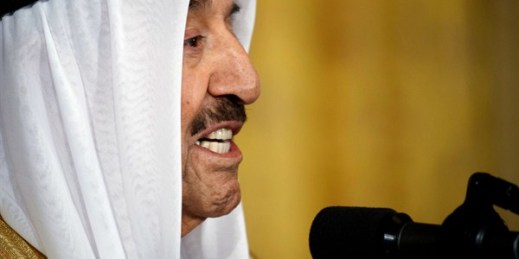
The Arab League’s economic boycott of Israel stretches back to the state’s founding in 1948. Today, only two Arab countries, Egypt and Jordan, have formal relations with Israel as a result of peace treaties, while the Arab League’s boycott remains in place for its other members. Yet backdoor cooperation with Israel is growing among some Arab states, creating the prospect of more economic and trade relations. The king of Bahrain, Hamad bin Isa Al Khalifa, reportedly even called for an end to the boycott of Israel in September. In an email interview, Paul Rivlin, an economist and senior research fellow […]


